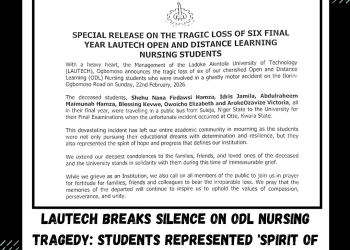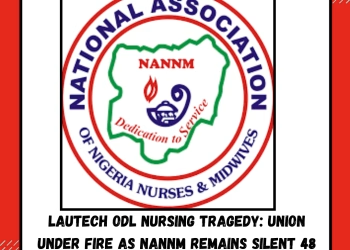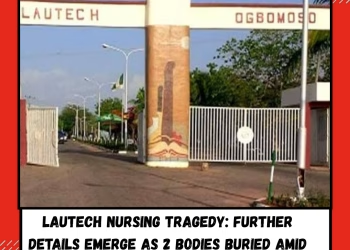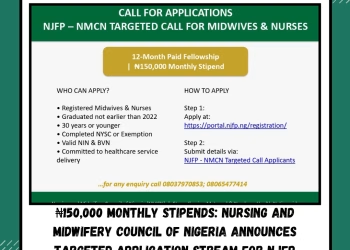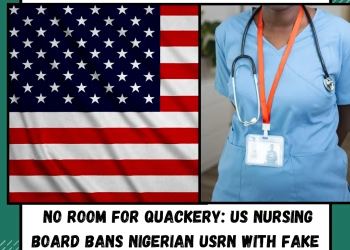
‘Restore Confidence’: Fellow Nurses Africa CEO Urges NMCN to Address 90% Failure Rate
FNA News, Lagos
19 November 2025
The Nursing and Midwifery Council of Nigeria (NMCN) is facing intense scrutiny after only 179 out of 1,890 candidates – a mere 9% pass rate, equivalent to a 90% failure rate – were declared successful in the November 2025 Professional Qualifying Examination for Public Health Nursing.
Candidates, lecturers, and training institutions have described the outcome as “unacceptable” and strongly indicative of administrative or technical irregularities in the computer-based testing (CBT) system.
👉 Join our Whatsapp channel Here
Several nurses who spoke to FNA News on condition of anonymity reported receiving failure notices for papers they never registered to sit, with some who were resitting only one subject marked absent or failed in multiple others.
“This is devastating. Many of us sold property, took loans, and invested years of our lives. To be told we failed just like that is heartbreaking and inexplicable,” one candidate said.
Reports from accredited centres nationwide reveal a consistent pattern of low passes. At Ahmadu Bello University, Zaria, only one candidate is reported to have passed. Similar outcomes have emerged from centres in Lagos, Benin, Enugu, Port Harcourt, and beyond.
Many are drawing parallels with the May 2025 examination cycle, where a high failure rate was attributed to questions being set outside the approved curriculum. Candidates now suspect the latest results may stem from glitches in the computer-based testing platform, errors in automated scoring algorithms, or mismatching of candidate responses during the upload or processing of CBT answer files.
A senior tutor at a school of nursing in southern Nigeria told FNA News:
“When 90% of candidates who have successfully completed 18 months of intensive post-basic training fail the same examination, the problem clearly lies with the process, not the candidates.”
Speaking exclusively to FNA News, Mr Kenny Oluwatosin, Chief Executive Officer of Fellow Nurses Africa, urged the council to act swiftly to restore public trust.
“We are in a digital age with remarkable technological advancement. Technology is not infallible, but when technical errors occur — especially in matters that directly affect the future of an entire generation of young nurses — a responsible regulator must step forward transparently, acknowledge the issue, and take swift corrective action to preserve the integrity of the profession,” Mr Oluwatosin said.
He continued:
“Earlier this year, a similar challenge arose with the Joint Admissions and Matriculation Board (JAMB). JAMB accepted responsibility, reviewed the results, and restored public confidence. This is the standard of accountability the Nursing and Midwifery Council of Nigeria must now meet.”
As of the time of publishing, the NMCN has not issued an official statement on the November results. Attempts by FNA News to reach the Registrar/Secretary-General, Alhaji Alhassan Ndagi, and the council’s Public Relations department were unsuccessful.
Professional bodies, including the National Association of Nigeria Nurses and Midwives (NANNM) and the University Graduates of Nursing Science Association (UGONSA), are under growing pressure to intervene.
A national officer of NANNM told FNA News the association “will engage the council firmly but constructively” in the coming days.
Candidates across the country are mobilising and demanding:
- An independent audit of the marking and result-compilation process
- Publication of centre-by-centre performance statistics
- Immediate re-marking where clear anomalies are identified
- A supplementary examination for affected candidates if systemic errors are confirmed
As the controversy intensifies, many in the nursing community warn that prolonged silence from the regulatory body risks irreparable damage to public trust in Nigeria’s nursing licensure system.
👉 Join our Whatsapp channel Here
Fellow Nurses Africa is the independent voice of African nursing, we educate, inform and support nurses across Africa

